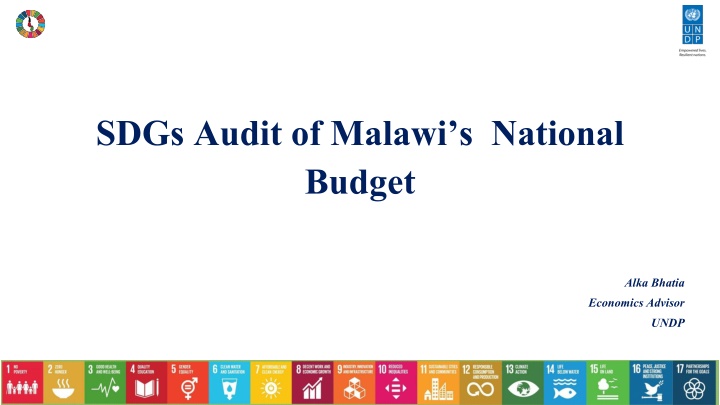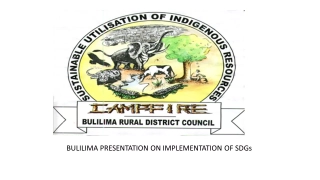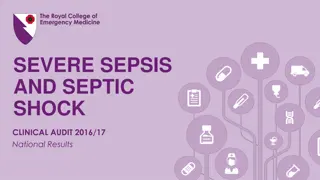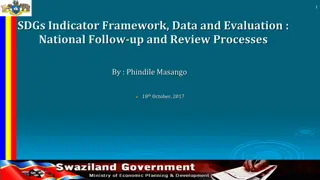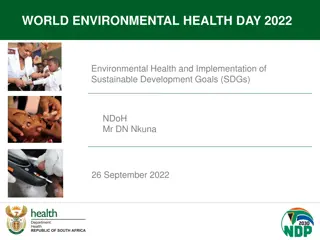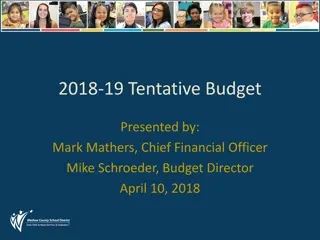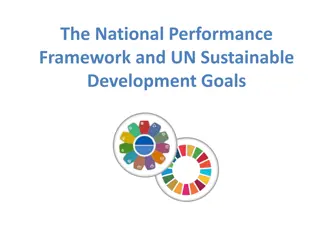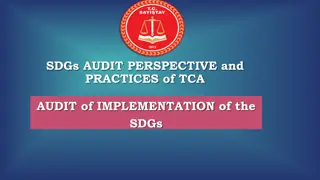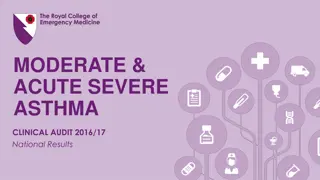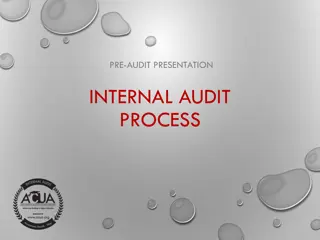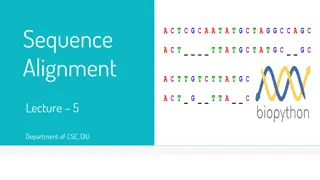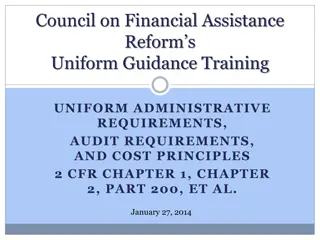Audit of Malawi's National Budget for SDGs Alignment
Malawi's national budget was audited to assess its alignment with the Sustainable Development Goals (SDGs) outlined in Agenda 2030. The audit revealed concerns about government revenue, expenditure trends, and the financing gaps in key priority areas such as agriculture, climate change, education, and skills development. Investments fall short of the required per capita amounts, indicating a need to intensify efforts to achieve SDGs. Recommendations include bridging the financing gaps and improving dialogue between the government and non-profit sector.
Download Presentation

Please find below an Image/Link to download the presentation.
The content on the website is provided AS IS for your information and personal use only. It may not be sold, licensed, or shared on other websites without obtaining consent from the author.If you encounter any issues during the download, it is possible that the publisher has removed the file from their server.
You are allowed to download the files provided on this website for personal or commercial use, subject to the condition that they are used lawfully. All files are the property of their respective owners.
The content on the website is provided AS IS for your information and personal use only. It may not be sold, licensed, or shared on other websites without obtaining consent from the author.
E N D
Presentation Transcript
SDGs Audit of Malawis National Budget AlkaBhatia Economics Advisor UNDP
Outline Introduction Overall Trends and Projections in Government Revenue and Expenditure in Relation to SDGs MGDS III-Specific Spending & Financing Needs to Achieve the SDGs Recommendations
Introduction Malawi ratified and adopted the Agenda 2030, and domesticated the SGDs through MGDS III Budget reviews important to assess alignment of national budgets to Agenda 2030 and SDGs implementation And equally to examine the financing gaps towards MGDS III KPAs, a channel through which SDGs can be achieved The audit was informed by desk reviews, KIIs, and a forward-looking analyses of the national budgets
Overall Trends and Projections in Government Revenue and Expenditure Trends in government revenue and spending (% of GDP) Development allocations far below the requirement of MGDS III, raising concerns about attainment of SDGs Borrowing to finance the deficits likely to crowd out SDGs focus with funds likely channeled towards debt service repayment
Per Capita Requirement to Meet SDGs Per capita investment requirements and deficit for SDGs Implementation (US$) Financing gdiscrepancies between required and actual investmentap of over US$98.38 for SDGs implementation, underscoring the huge Need to intensify investment efforts to make progress towards SDGs achievement Significant resources channelled outside the national budget need to be taken into consideration in monitoring SDGs progress
MGDS III Spending & Financing Needs to Achieve the SDGs Agriculture & Climate Change Per capita investment requirements & deficit(US$) Per capita investment gap of US$17.20 Need to invest simultaneously in sustainable programmes that will improve the people s livelihoods, including in irrigation and climate change adaptation
MGDS III Requirement to Achieve the SDGs Education and Skills Development Per capita investment requirements & deficit(US$) Per capita devt exp deficit of US$14.60 Need for improved dialogue and cooperation Government and the non-profit sector between the
MGDS III Energy Spending & Financing to Achieve the SDGs Per capita investment requirements & deficit(US$) Per capita devt exp deficit averaging US$26.50 Need for structural transformation to arrest ongoing power shortages which are negatively affecting production and resulting in job losses
Health & Population Financing Needs Per capita investment requirements & deficit(US$)
MGDS III Transport Financing Needs Per capita investment requirements & deficit(US$) Per capita devt deficit of US$27.70 Raises concerns for the country s capacity to enhance infrastructure in the sector and potentially achieve SDG 9
Gender & Women Empowerment (MGDS-III) Per capita investment requirements & deficit(US$) Per capita Devt deficit of US$2.90 Financing gaps in the sector may contribute to continued gender inequality and marginalization of women and girls & jeopardize SDGs achievement
Recommendations Policy Response Need to develop innovative and sustainable strategies of financing deficits and maintaining a clear SDG focus, including being gender responsive: The national budget should clearly identify the SDGs being focused and targeted in the sectoral allocation. Sustainable strategies for financing budgetary deficits are required to maintain the focus on SDG achievement e.g public-private financing and other domestic revenue mobilization channels Need to explore innovative financing such as co-financing strategies especially at the district level; emphasis on moving away from siloed budgeting processes and focusing more on cost-effective multi-sectoral interventions. Consideration should go to improving the quality of budget content and execution as measured by the Government's ability to accurately hit its own revenue and expenditure targets
Recommendations Institutional Actions Need to build strong consensus around the role and significance of effective, accountable and inclusive institutions in promoting sustainable and equitable development in Malawi Enhanced partnerships with non-state actors to step up their efforts in financing the SDGs by aligning priorities with the country s development agenda and the SDGs. Need for improved coordination among non-state actors, development partners and other stakeholders in meeting established financing gaps, to ensure optimality in the allocation of resources in line with country priorities and the SDGs. Strengthening sectors absorption capacity by, among others, effectively working on its MIS and submitting timely reports to the MoFE&PD and other funding agencies
Recommendations Implementation Issues The SDGs audit of the National Budget should be conducted annually and regularly alongside the MGDS reviews and the SDGs annual reports Annual budget reviews should be conducted with a stronger focus on equity and efficiency of expenditures The Government should map the national budgets against the SDGs targets and indicators to evaluate the National Budgets A budget-reporting dashboard for citizens on the linkages between SDGs implementation and the National Budgets needs to be developed
Thank You for Your attention Questions and Comments to alka.bhatia@undp.org Full Report Available on UNDP Malawi Web site
